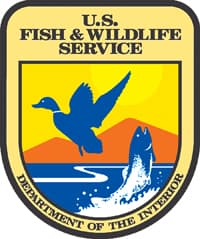Agencies Take Action to Help Safeguard Fish, Wildlife and Plants in a Changing Climate
OutdoorHub 09.22.14

In partnership with state, federal, and tribal agencies, the U.S. Fish and Wildlife Service released a report entitled “Taking Action” which describes 50 projects that collectively address the natural resource impacts of climate change. The report was created in response to the *National Fish, Wildlife and Plants Climate Adaptation Strategy* which was published in March, 2013.
“Across the nation, a broad coalition of natural resource agencies is working with partners and stakeholders to collectively address the current impacts and future threats of climate change,” said Rowan Gould, Deputy Director of the U.S. Fish and Wildlife Service. “The concrete actions documented in this report represent real progress, but helping native species cope with the effects of climate disruption requires us to build on these successes and redouble our commitment to the National Strategy for the benefit of our natural ecosystems and the millions of Americans that rely on them.”
Projects highlighted in the report were selected from approximately 100 case studies which represent over 350 individual, federal, tribal and state agencies, departments, non-governmental organizations, private businesses, and landowners. They cover a wide geographic range and include:
- Using conservation easements and other tools to protect more than 250,000 acres from White Mountain National Forest in New Hampshire to Moosehead Lake in Maine, providing a connective corridor of contiguous, climate-resilient wildlife habitat
- Installing engineered log jams and planting native trees to protect remnant spawning habitat for salmon along 12 miles in the Quinault River on Washington’s Olympic Peninsula while also stabilizing streams against erosion
- Using new climate adaptation forestry practices to plant a diverse suite of native tree species in northern Minnesota
- Providing online training for natural resource managers and conservation professionals across the nation on the fundamentals of climate science and tools for climate adaptation to help them make smart land management decisions for the future
“The state perspective has been integral to shaping the *Taking Action* progress report. The report builds on and documents many of the partnership efforts underway to move climate adaptation from planning to action across the country” said Kevin Hunting, Chief Deputy Director of the California Department of Fish and Wildlife. “While the report lays out priority actions being taken now, there is still much more to be done to comprehensively address wildlife and fisheries adaptation to a rapidly changing climate.”
The examples highlighted in this report are not a comprehensive account of what has been accomplished, but rather illustrate the diversity of projects, scales of planning, and partnerships that can be and are being utilized across the natural resource management sector to respond to the impacts of climate change. These challenges include changing species distributions and migration patterns, the spread of wildlife diseases and invasive species, the inundation of coastal habitats with rising sea levels, changing productivity of our coastal oceans, and changes in freshwater availability.
Development of the *National Fish, Wildlife, and Plants Climate Adaptation Strategy* was made in response to a 2010 call by the U.S. Congress for a national, government-wide climate adaptation strategy to assist fish, wildlife and plants. The strategy’s implementation is coordinated through the Joint Implementation Working Group, which is co-led by the U.S. Fish and Wildlife Service, National Oceanic and Atmospheric Administration, the Great Lakes Indian Fish and Wildlife Commission, and the California Department of Fish and Wildlife (representing state fish and wildlife agencies). The Joint Implementation Working Group, which includes representatives from 15 federal agencies, five state fish and wildlife agencies, and one inter-tribal commission, oversaw development of the *Taking Action* progress report with support from the Association of Fish and Wildlife Agencies.
The National Fish, Wildlife and Plants Climate Adaptation Strategy and the *Taking Action* Progress Report can be found on the web at www.wildlifeadaptationstrategy.gov.
Contact
Christina Meister, (703) 358-2284, christina_meister@fws.gov

